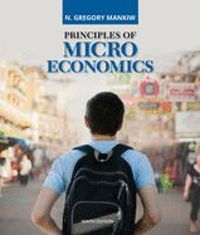Question
1. Suppose that the government decides to issue tradable permits for a certain form of pollution. If the government chooses to distribute the permits, the
1. Suppose that the government decides to issue tradable permits for a certain form of pollution. If the government chooses to distribute the permits, the allocation of permits among firms does not matter for efficiency, but it would affect the distribution of wealth.
a. TRUE
b. FALSE
2. An optimal price of the product is determined by its marginal cost and price elasticity of demand.
a. TRUE
b. FALSE
3. Which is maximized when both parties - sellers and buyers - are satisfied with the fair deal they're getting?
A) consumer surplus
B) producer surplus
C) total welfare
D) none of the above
4. Which of the following is true for a firm operating in a perfectly competitive market?
A) The firm can control neither price nor its output.
B) The firm can control its price but not its output.
C) The firm can control its output but not its price.
D) The firm can control price and output.
Step by Step Solution
There are 3 Steps involved in it
Step: 1

Get Instant Access to Expert-Tailored Solutions
See step-by-step solutions with expert insights and AI powered tools for academic success
Step: 2

Step: 3

Ace Your Homework with AI
Get the answers you need in no time with our AI-driven, step-by-step assistance
Get Started


